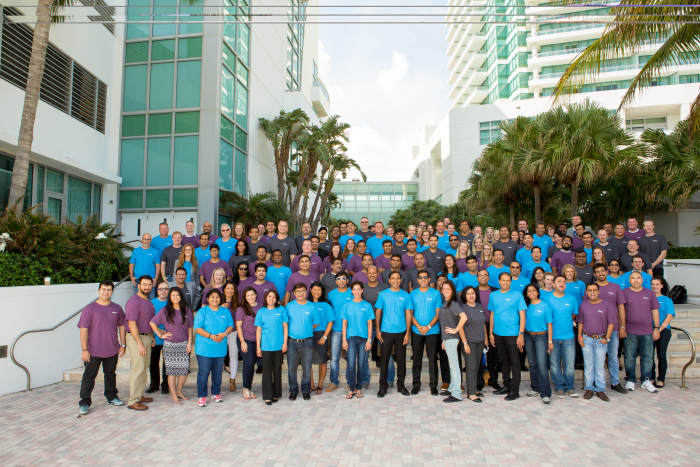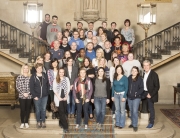The founders of Collabera didn’t start out with lofty visions of winning repeated workplace awards. But as Collabera takes its place on Staffing Industry Analysts’ Best Staffing Firms to Work For list for the fifth straight year, it’s clear that the goals of its founders 25 years ago pointed the way to today’s successful culture.
“When we started the company, we had a very simple objective: We wanted to build a great company that takes care of our clients and employees,” says Chairman Hiten Patel.
“As we’ve grown, we’ve tried to make the culture a fun place to work,” says Dhar Patadia, CIO. “It’s almost like a family-type atmosphere,” even as the company has grown to 400 employees in the United States.
Support for employees. Creating the right culture starts with hiring, says Ashwin Rao, executive VP. “We hire employees who demonstrate clear cultural values: they’re passionate about client service, competitive, responsive.”
They then provide a lot of support to help those employees be successful: “It’s not a sink-or-swim environment,” says Jeremy Sheffey, regional director, who has been with the company for one year. “If you’re a new employee, you go through extensive training. We’re going to invest a lot of time and money to get you trained.”
The right kind of competition. Even though the company puts a premium on hiring competitive people, employees say the company has done a good job of creating a team environment, so employees are competing against other firms more than against each other.
“We put in checks and balances,” Rao says. “There are incentives to ensure that there is collaboration among teams.”
Work and play hard, and give back. “We work hard, but we want to make it a fun place to work, too, where people get up in the morning and want to come to work,” says Dawn Serpe, VP of strategic accounts.
Last year, Serpe says, the company’s internal culture committee decided not to spend money on gifts for clients — many of whom are not allowed to accept them in any case — and instead asked each regional office to volunteer at a charity of their choice, with the company covering any expenses.
“Our holiday card let our clients know that we had donated our time and money to all these charities in the spirit of giving,” Serpe says.
Success breeds success. “The opportunity that we provide our employees has helped us in retention, as well as having them feel part of this success story that we have created,” Rao says.
The company’s success has also contributed to its strong culture, Patel says, because “it’s a growth opportunity for individuals.” The company has offices in many countries, and employees are empowered to work on projects beyond just their regular jobs.
For example, Patel says, each US office has designated an employee to work with the marketing department on localizing the company’s marketing efforts. This gives employees who don’t work in marketing an opportunity to broaden their skills — and it increases employee engagement.
Continuous cultural improvement. “We’ve got our ear very close to the ground — we’re trying to listen to employees,” Patadia says. “We’re trying to constantly improve and make ourselves a much better company.”













